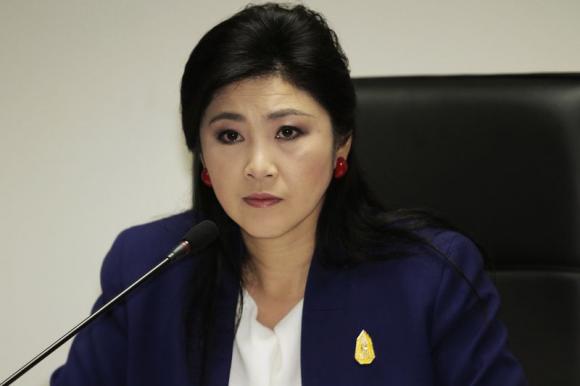
Thailand’s Constitutional Court has ruled that PM Yingluck Shinawatra must step down over abuse of power charges.
The court ruled that Yingluck Shinawatra acted illegally when she transferred her national security head.
It has also ruled that some cabinet ministers involved in the transfer must also step down.
The ruling follows months of political deadlock. Anti-government protesters have been trying to oust Yingluck Shinawatra since November 2013.

The move is likely to trigger protests by supporters of the government, which remains very popular in rural areas.
PM Yingluck Shinawatra had been accused of improperly transferring Thawil Pliensri, her national security chief appointed by the opposition-led administration, in 2011.
Appearing court on Tuesday, she had rejected the suggestion that Yingluck Shinawatra’s party had benefited from the move – but the court ruled against her.
“The prime minister’s status has ended, Yingluck can no longer stay in her position acting as caretaker prime minister,” a judge said in a statement.
It is not yet clear whether one of Yingluck Shinawatra’s ministers can step in or whether Thailand now faces a political vacuum.
Anti-government protests began in the Thai capital late last year, with demonstrators blockading several parts of the city.
In response, Yingluck Shinawatra called a snap general election in February that her party was widely expected to win. But the protesters disrupted the polls and the election was later annulled.
Her supporters believe that the courts are biased against her and side with the urban elite at the heart of the protest movement.
Thailand has faced a power struggle since Yingluck Shinawatra’s brother, Thaksin Shinawatra, was ousted by the military as prime minister in a 2006 coup.
Thaksin Shinawatra and his family are hated by the urban and middle-class elite who accuse them of corruption and abuse of power.